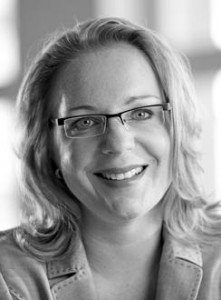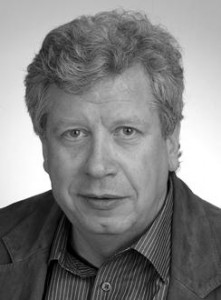Germany’s not-so-smooth energy transition

Participants at Deutsche Welle’s Global Media Forum 2013. Are they surprised that the ship hosting the opening party runs on polluting diesel rather than clean solar power?
It’s a revolutionary project – Germany plans to meet 80 percent of its electricity needs with wind, sun and other renewable energy sources by 2050. In June 2013, Global Ideas hosted a high-level panel to debate Germany’s “Energiewende” (energy transition) – the country’s biggest infrastructure project since 1945. The debate was part of Deutsche Welle’s “Global Media Forum” in Bonn.
We asked our high-profile panel guests – Is Germany’s green revolution a role model for other countries or could it turn into a nightmare for German citizens with costs exploding? Global Ideas’ Kerstin Schnatz has more.
Energy transition challenges

Claudia Kemfert, head of the Department of Energy, Transportation, Environment at the German Institute of Economic Research (DIW), Berlin
Professor Claudia Kemfert from The German Institute for Economic Research (DIW) stressed, that despite 42 percent of all investments in renewable energies coming from citizens rather than big companies, the energy revolution is still under real threat. The German government provided the wrong incentives for a real green revolution favoring fossil fuels, such as coal, she said. “ We had thought that CO2 prices would solve the problem – but the fact is they don’t,“ Kemfert said, saying that explained why coal power still dominates Germany’s energy mix.
Kemfert, who was recently appointed shadow environment minister in the state of Hesse, warned that Germany had to be weaned off its reliance on coal. “Investments into coal power plants are still too cheap. But when new coal power plants are built today, we will be tied to them for the next 40-60 years until they are paid off,“ Kemfert said.
She admitted that fossil fuels are still needed for the transition phase, but she hopes to see more gas rather than coal as it is less polluting. Though solar power already provides 60 percent of Germany’s electricity needs on a sunny day, gas is still needed for cloudy and windless days, Kemfert said.
‘Dash for gas’
But British environmental journalist Fiona Harvey from the Guardian newspaper did not agree with Kemfert. “Gas is not a low carbon fuel,” the London-based expert on climate change issues said. Harvey warned that Britain’s “dash for gas” may turn into a big problem in the future when gas prices, which tumbled temporarily due to new extraction methods such as shell gas, rise.
According to Harvey, Britain needs an energy transition that increases the percentage of renewable energies from a current 5 percent of the overall energy mix. In Germany, renewables account for over 25 percent. “Only one fuel to rely on is not a good idea,“ Harvey warned, making the case for a green revolution where neither sun nor wind cost anything at all. She said she hoped Germany becomes a role model proving to other countries that a green revolution is possible.
New coal power plants

Franzjosef Schafhausen, head of Section Transformation of the Energy System, Federal Ministry for the Environment, Nature Conservation and Nuclear Safety (BMU)
Moderator Michaela Küfner’s question about whether Germany was intentionally headed for coal was anwered with an emphatic ‘no’ by Franzjosef Schafhausen, who represented the German federal ministry for the environment, nature conservation and nuclear safety.
Schafhausen admitted that new coal power plants are being built in some places – such as the 1.100 Megawatt MW plant Datteln IV in North Rhine-Westphalia. But at the same time, he stressed that Germany’s energy transition policy meant that “no company is prepared to make new investments in coal at the moment.”
Schafhausen who chairs the ministry’s department for the energy transition would like to see the carbon trading system reactivated, hoping to put a higher price on CO2 and thus making coal even less attractive for big companies.
Share our videos
An easy way to spread the word about GLOBAL IDEAS is to simply embed our weekly video reports into your Facebook account or your own homepage.
Here is an example of how the video will look like after you have embedded it into your own homepage:
To find the specific embed code for one of our more than 100 video reports head over to our GLOBAL IDEAS stream within Deutsche Welle’s Youtube channel and follow the instructions below:
1) Find the video you want to share
2) Click the “share” button below the video
3) For sharing the video on Facebook, the short code you see now is sufficient. Just copy and paste it to your Facebook wall.
For embeddingt the same video to your own homepage, you need the HTML-code. To get this, simply click “embed”. Then just copy and paste it into your website’s CMS.
Spread the word!
Help us spreading good ideas to combat climate change! Simply place a link to our GLOBAL IDEAS homepage, where we showcase a new, innovative climate project every week.
To spread the word, just choose an image from below, copy the code snippet from the white field and paste it into your website’s CMS.
![]() read more
read more




Feedback